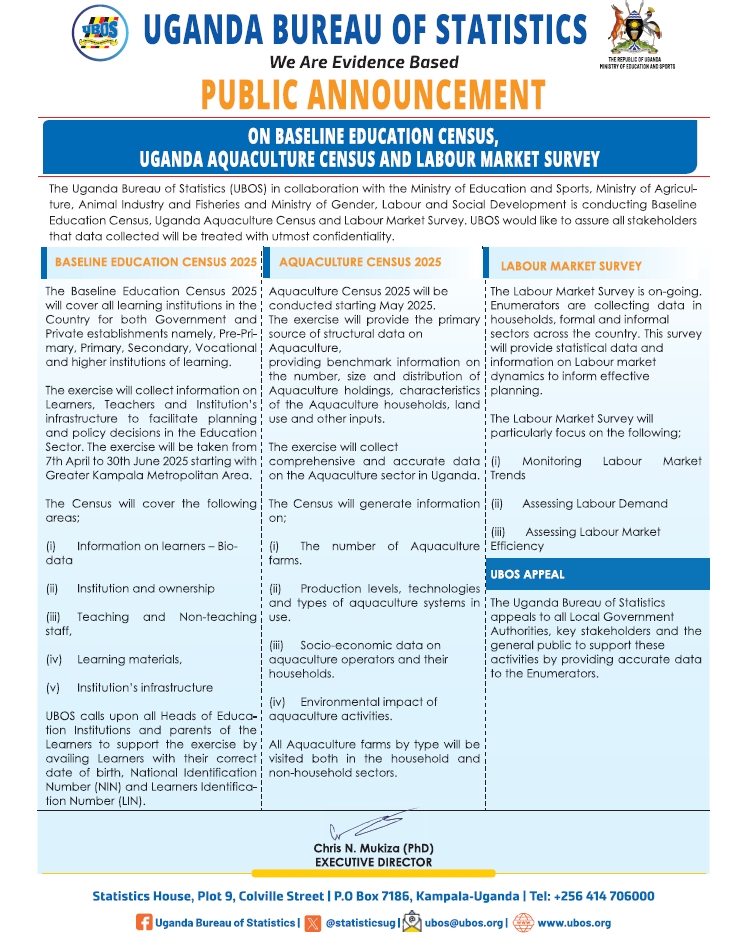Makerere University has partnered with the Aids Healthcare Foundation (AHF) Uganda Cares to strengthen collaboration in the fight against HIV/AIDS at Universities.
Deputy University Secretary, Mr. Kizito Simon says the collaboration will particularly focus on prevention and care services for the University’s student population.
Kizito Simon who presided over the meeting said that the collaboration is in line the university human capital development that aims to create a healthy population.
“It’s not only good to have an educated population, but a healthy population as well,” he noted.

Kizito stated that the government supports various interventions in HIV prevention, care, and treatment, with the Makerere University Infectious Diseases Institute (IDI) playing a leading supportive role. On this note, he encouraged AHF Uganda Cares to equally come on board in order to strengthen the fight against HIV/AIDS.
He pledged more partnerships with various sectors, including ministries, departments, agencies, international organizations, civil society, and the private sector in order to strengthen its research-led aspirations.
He therefore encouraged Uganda Cares to support HIV AIDS services, including prevention, care, and treatment, and to collaborate in research and innovation, especially with faculty members already engaged in HIV AIDS-related research.
Mr. Kizito expressed appreciation for the wellness clinic initiative, which is poised to provide accessible sexual reproductive health services to students at no cost
Makerere university Guild President. Ssentamu Churchill James with concern noted the increasing levels of irresponsible behavior among young people, which has led to the high risk of contracting STDs, and welcomed initiatives proposed by AHF Uganda Cares.
He stressed the importance of abstinence but also emphasized the need for protection in case of emergencies hence suggested the possibility of counseling for those who have already contracted STDs.

“I hope we can have an attachment of counselling for people that have already contracted diseases,” he stated.
He took note of existing efforts such as the government’s stock of contraception and the presence of health ministers at every hall of residence. In this regard, he proposed a linkage between the initiative and these health committee members through the Guild Minister of Health Affairs to ensure continuity.
The National Medical Director-AHF Uganda Cares, Dr. Lubanga Augustine expressed gratitude for the opportunity to discuss collaboration with the university.
He highlighted that AHF Uganda Cares provides cutting-edge medicine regardless of the patient’s ability to pay and advocates for conducive policies to increase access to HIV and STI services.
Dr. Lubanga emphasized the importance of addressing the gap in young people’s access to health services particularly for sexual health issues. He noted that even parents and guardians often avoid discussing sexual issues contributing to a lack of education awareness among young people.
He pointed out that funding for HIV prevention has shifted towards treatment despite the need for continued prevention efforts. In this, he called for increased advocacy and partnerships to secure funding for health services particularly for young people.
Dr. Lubanga expressed willingness to collaborate with the University Hospital to ensure that no one is left behind in HIV and STI services. As a sign of their commitment, AHF Uganda Cares handed over condom dispensers and condoms to the university.
Dr. Byamugisha Josaphat, Director at the University Hospital emphasized the importance of prevention in health, through programs such as STI prevention, HIV early treatment, and health education “Prevention is better than cure,” he said.
The Director discussed the need for health education and information materials, including pamphlets and WhatsApp messages, to educate students and the public about HIV.
“The university is already running health education programs for students and surrounding communities,” he stated.

Dr. Byamugisha further highlighted the importance of male circumcision as a preventive measure against HIV, which is already being offered at the university hospital. “We are aware that safe male circumcision can prevent about 60% of male HIV,” he explained.
He talked about the need for supplies and human resources for screening, emphasizing the importance of protecting the university community and surrounding areas. “The university hospital aims to go beyond just serving students but also help the broader community,” he added.
In his final remarks, he appealed for support to make services more accessible to students and reiterated the importance of collaboration to protect students and the broader community.
The Deputy Principal, College of Engineering, Design, Art and Technology (CEDAT)-Prof. Kizito Maria Kasule, highlighted that 75% of young people contracting HIV are between the ages of 14 and 24, indicating a need for targeted prevention efforts.
He pointed out the poverty among girls as a significant issue contributing to the spread of HIV because they look at the sexual related practices as means of earning a living which has led to the high spread of these infections.
Prof. Kasule emphasized the importance of involving different religious institutions to sensitize people about the organization’s work and counteract negative perceptions. He suggested that the organization should collaborate with various religious institutions. “Even Born Agains are involved in the sexual relationships but cannot come out to express themselves,” he added.
Coordinator of the HIV program at AHF Uganda Cares, Mrs. Mbabazi Martha, introduced the girl’s act program which aims to empower young women to address issues affecting them at various levels, from primary school to national policy.
“The program encourages young women to raise their voices and influence policies that affect their lives,” she commented.
She highlighted the success of the program in engaging young people and influencing policy changes at different levels of governance, such as the distribution of sanitary pads in schools and communities.
Mrs. Mbabazi emphasized the importance of skilling centers for young girls to gain economic independence and avoid exploitation. She highlighted the success of webinars and dialogues in raising awareness and influencing behavior change. In closing, she called for continued collaboration with various stakeholders to support the empowerment of young people and address the root causes of HIV infection.
Mr. Amojong Trevor, a representative from AHF Uganda Cares, introduced the “Boys to Men” initiative program to address poor health seeking behavior and lack of testing among boys. He emphasized that the need to empower girls should go hand in hand with focusing on boys to prevent the spread of HIV.
Aids Healthcare Foundation (AHF) Uganda Cares an NGO based in the USA operating in 47 countries, including 14 in Africa. AHF Uganda Cares started in 2002 in the Masaka region and now operates in 32 districts with over seven health facilities. The organization supports over 203,000 lives on HIV treatment and has tested over 7 million Ugandans for HIV.
The organization offers HIV prevention services, including the ABC (Abstinence, Be Faithful, Condom) approach, and provides about 6 million condoms annually.


